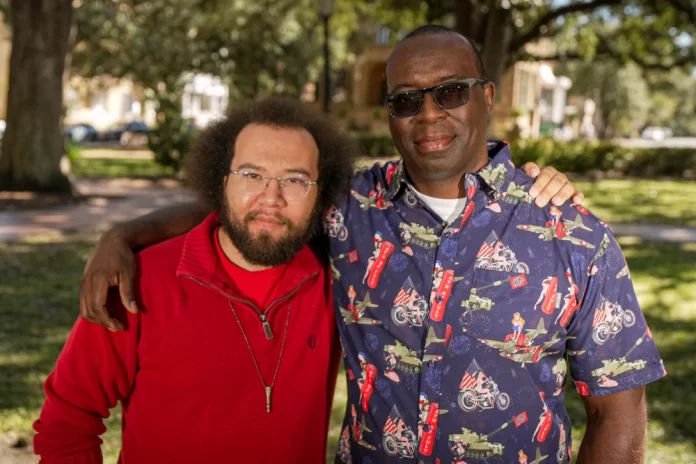A House Divided: Generational Political Divide in the Shockley Family
David Shockley, a longtime resident of Savannah and aircraft mechanic instructor, struggles to understand his son Darius’ political views. David, a Black man who plans to vote for former President Donald Trump for a second time, finds himself at odds with his 25-year-old son, Darius, who identifies as a leftist and intends to vote for Vice President Kamala Harris. Their opposing views highlight a growing generational divide in American politics, especially between parents and their young adult children.
Generational Divide in Politics
A recent NBC News Stay Tuned Gen Z poll revealed that more than half of Gen Zers aged 18 to 29 have political views that differ from at least one of their parents, with a third differing from both. Despite this divide, family opinions still play a significant role, with 45% of Gen Z respondents saying they pay attention to the views of family, friends, and coworkers, more than political leaders or organizations.
Shifting Political Preferences for 2024
This generational split is especially visible in the lead-up to the 2024 election. Half of Gen Zers plan to vote for Kamala Harris, while a third lean toward Trump. This contrast reflects the political leanings of younger voters, who have historically supported Democrats. In the 2020 election, 60% of voters aged 18 to 29 backed Joe Biden, while only 36% supported Trump. Issues like climate change, abortion, and gun reform have aligned many young Americans with more progressive values.
Darius recalls the moment he first realized his political views differed from his father’s. At 12 years old, he overheard his father speaking negatively about President Obama during his re-election campaign in 2012.
As a biracial individual, Darius felt a personal connection to Obama and was perplexed by his father’s lack of support. Now, Darius sees Kamala Harris as a similar role model for young women, particularly Black and Asian girls, and hopes to inspire more young people to get involved in politics.
Experts Weigh In on the Shift in Political Trends
Experts note that generational divides in politics are not new, but today’s media landscape may be amplifying these differences. Ben Waterhouse, a history professor at UNC Chapel Hill, suggests that the fragmentation of media consumption is helping to widen the gap between younger voters and their parents. While Gen Z has leaned Democratic in recent years, some experts caution against assuming this trend will persist as these generations age.
Margaret Talev, director of the Institute for Democracy, Journalism, and Citizenship, points out that while Gen Z and millennials may shift U.S. politics to the left, there are signs that Gen Z may be slightly more conservative than millennials. As the political environment continues to evolve, these shifts in allegiance could lead to changes in party identities.
Looking Ahead: The Future of Gen Z Voters
As Gen Z matures, political analysts are curious to see whether they will continue to prioritize progressive values or eventually shift toward more conservative views, like previous generations such as Gen X and millennials. Daniel Potter from the Kinder Institute for Urban Research notes that it will be interesting to track these trends in future elections and see how Gen Z’s political preferences develop over time.
The Shockleys’ differing political opinions reflect a broader trend in which generational divides are becoming more pronounced. As younger generations assert their political beliefs, families like the Shockleys are navigating the complexities of a rapidly changing political landscape.








